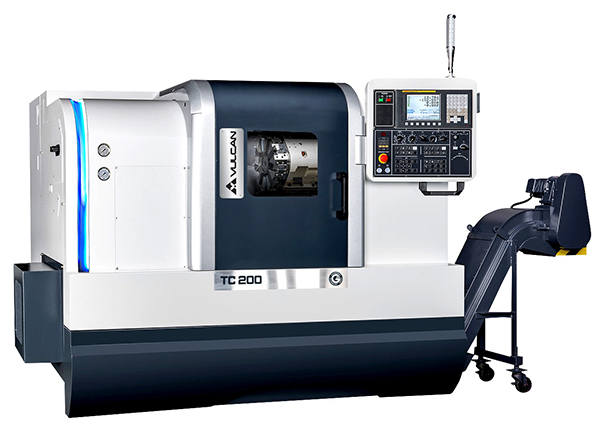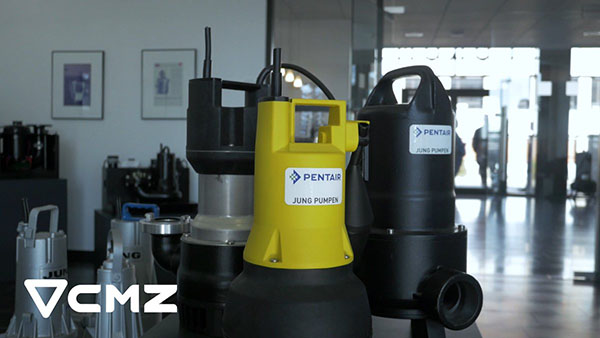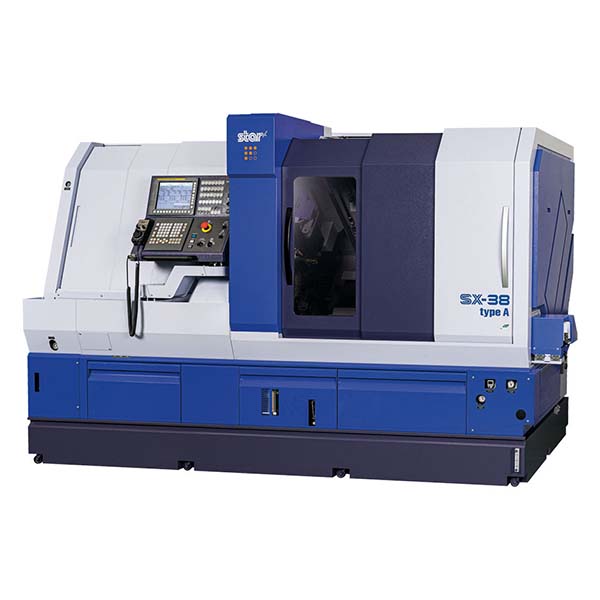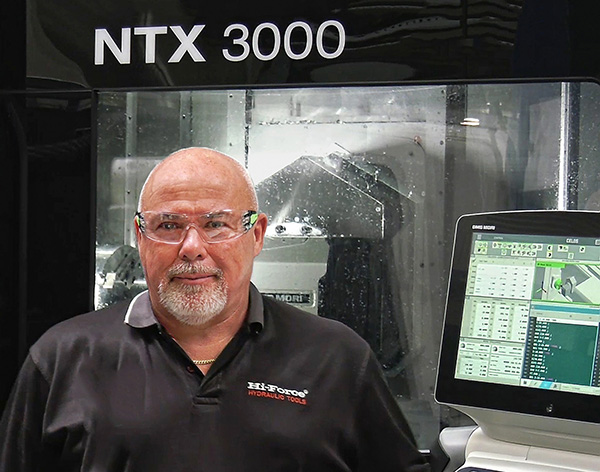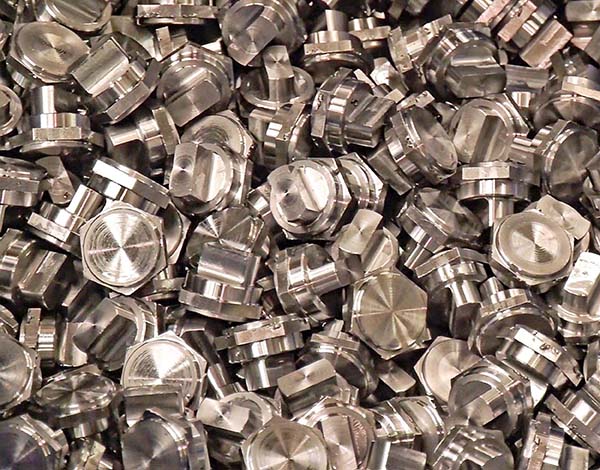
Following the launch of the new Vulcan brand of quality yet cost-effective machine tools, the Engineering Technology Group (ETG) has released the new TC200 turning centre. As part of the TC Series, the TC200 is the smallest and most compact machine in the range with a 200 mm diameter chuck size.
The TC200 is a single-spindle, single-turret lathe with a 45° slant-bed construction to ensure maximum stability while ensuring effective swarf removal from the work envelope. This ergonomic design allows users to maximise the heavy-duty cutting potential of the machine during uninterrupted batch or series production without continually opening the door to remove chips.
ETG’s Vulcan TC200 is available in four variants. The base model has a swing over bed of 460 mm, a maximum turning diameter of 280 mm, a spindle speed range of 25 to 4200 rpm and a spindle bore of 61 mm diameter.
For manufacturers looking to reduce secondary operations, ETG can supply the TC200M. This machine provides the opportunity for live tooling stations on the turret for engineers seeking an increase in their capabilities. A servo turret provides high-torque live tooling speeds from 25 to 4000 rpm. ETG’s Vulcan TC200ML is also available, providing the live tooling version in a longer bed model.
The fourth model, the TC200L is the long-bed variant that extends Z-axis travel from the standard 490 mm, to 740 mm.
As standard, the TC200 series is supplied with a 3-bar coolant pump, 130-litre capacity coolant tank, eight-position hydraulic tooling turret, automatic lubrication system, tool kit, work light, three-colour beacon light, heat exchanger for electrical cabinet, chip conveyor, programmable tailstock, automatic part catcher and automatic tool probing.
For further information
www.engtechgroup.com






